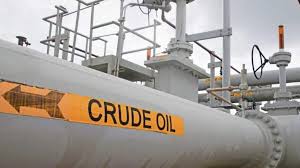The International Energy Agency announced Tuesday that all 31 member countries have decided to release 60 million barrels of oil from their strategic reserves “to send a clear message to oil markets” that there will be “no deficit in supplies” as a result of Russia’s invasion of Ukraine.
At an unusual meeting of energy ministers headed by US Energy Secretary Jennifer Granholm, the IEA board made the decision. Other members of the organization include Germany, France, the United Kingdom, Japan, and Canada, in addition to the United States.
1.5 billion barrels of oil are held in emergency stocks by IEA members. For 30 days, 4% of inventories will be released or nearly 2 million barrels per day.
“The situation in the energy markets is really serious and requires our entire attention,” said Fatih Birol, executive director of the International Energy Agency. “Global energy security is in jeopardy, putting the global economy at risk at a critical juncture in its recovery.”
As the world’s third-largest oil producer, Russia plays a significant role in global energy markets. Its crude exports of 5 million barrels per day account for around 12% of world oil trading. A total of 60% of the product is exported to Europe, with the remaining 20% going to China.
So far, sanctions imposed by the United States and Europe have not prohibited oil or gas exports, and they have included exceptions for transactions used to pay for oil and gas. At a time when global energy markets are tight and high prices are stoking inflation in rich nations, Western officials are hesitant to restrict Russian oil supplies.
However, the invasion of Russia has caused world markets to tremble. Oil prices rose on Tuesday, with benchmark crude in the United States hitting $100 per barrel for the first time since 2014.
Since the reserves were formed in the aftermath of the Arab oil embargo in 1974, this is only the fourth time the IEA has done a coordinated drawdown.
The price of crude oil influences a large chunk of what drivers spend to fill up their cars with gasoline in the United States. According to the motor club association AAA, the national average for a gallon of gas is $3.61, which is 26 cents higher than a month ago and 90 cents higher than a year ago.
President Joe Biden of the United States announced a 50 million barrel oil release in November in collaboration with other energy-importing countries, but the move had only a temporary influence on oil prices, which have continued to rise.

















